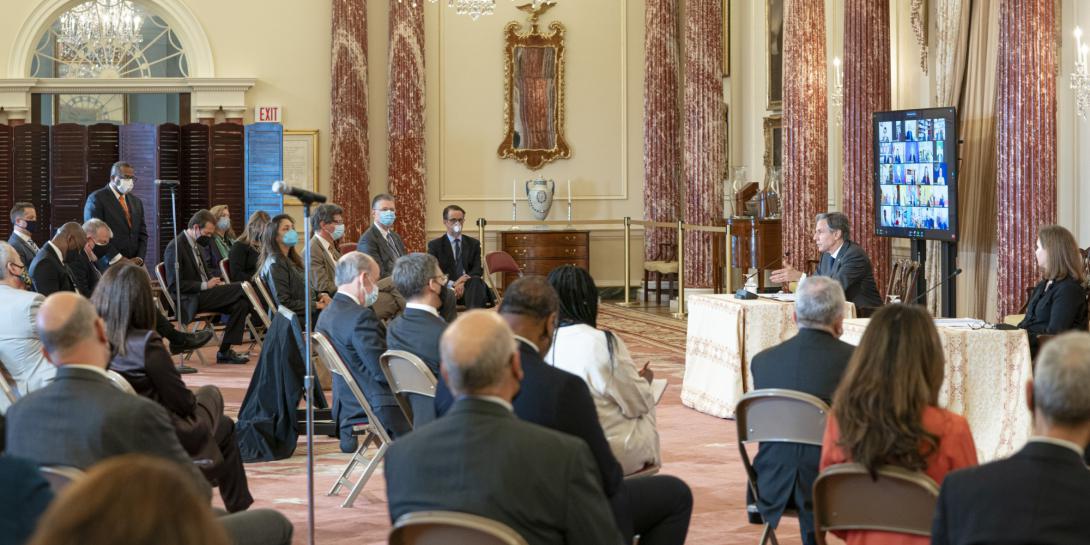New Cyber Bureau Takes Shape
The United States is adding another tool in its attempt to improve cybersecurity. The U.S. State Department is in the process of standing up a bureau of cyberspace and digital policy. The new organization will conduct cyber diplomacy around the globe and set international norms around cybersecurity. The department is also creating a new position at State called the special envoy for critical and emerging technology.
Compared to an ambassador who is stationed in a foreign country to increase bilateral ties with the United States, a special envoy oversees a specific portfolio, in this case, critical and emerging technology. Both the senior bureau official and the special envoy roles would require Senate confirmation.
Leaders of the Cyberspace Solarium Commission, Sen. Angus King (I-Maine) and Rep. Jim Langevin (D-Rhode Island), who spearheaded recommendations to create such an organization, applauded the move following a reported call with Deputy Secretary of State Wendy Sherman yesterday evening.
“Tonight, Deputy Secretary Sherman laid out the State Department’s plan to create a bureau of cyberspace and digital policy as well as a special envoy for critical and emerging technology,” Sen. King said in a statement. “We are in complete alignment with the Biden administration’s approach, which is exactly the kind of move we need to better coordinate cyber diplomacy and set international norms around cybersecurity. In particular, we were pleased to hear that the new bureau will be responsible for overseeing international cybersecurity, digital policy and digital freedom while matters of critical and emerging technology will be handled by a separate special envoy.”
“Secretary [of State Anthony] Blinken’s vision for preparing the State Department to meet the challenges of the 21st century is a further demonstration of his commitment to strengthening the United States’ posture in cyberspace,” noted Rep. Langevin. “We look forward to working together with the State Department to establish these new authorities in statute and provide the necessary tools to the Department, resulting in the long-term viability of this new bureau.”
In the waning days of the Trump Administration on January 7, then-Secretary of State Mike Pompeo approved the creation of a bureau of cyberspace security and emerging technologies but did not fully establish the bureau, according to a report from the Government Accountability Office (GAO). GAO, the government’s watchdog, found that Pompeo had not demonstrated that State had used data and evidence to develop the proposal for the new bureau.
This new attempt of a State Department bureau-level cyber organization will focus on promoting digital policies and operational freedom for the United States in the digital domain without fear of attacks from near-peer adversaries, other state- and non-state-based actors.
The department already has an Office of the Coordinator for Cyber Issues, which seeks to promote “an open, interoperable, secure, and reliable information and communications infrastructure,” that enables free trade and commerce, international security and freedom of innovation, according to State. No word yet on how a higher-level bureau of cyberspace security and emerging technologies would coordinate with that office.






Comments